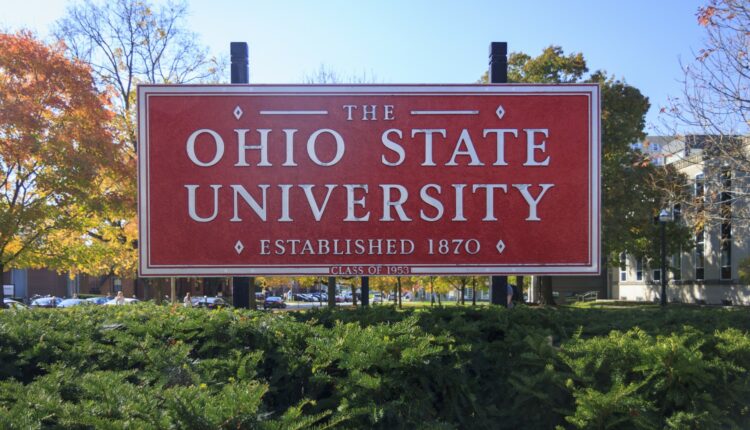Ohio State University: Ten Ohio State students receive Fulbright awards
Ten students from The Ohio State University received Fulbright U.S. Student Program awards for the 2021-2022 academic year from the U.S. Department of State and the Fulbright Foreign Scholarship Board.
Fulbright participants will study, conduct research and teach abroad for the 2021-2022 academic year through the Fulbright U.S. Student Program. Recipients of Fulbright awards are selected in an open, merit-based competition that considers leadership potential, academic and/or professional achievement and record of service.
“Ohio State continues its record of excellence in producing Fulbright Students with this latest round of award recipients,” said President Kristina M. Johnson. “That is a testament to the academic rigor our institution provides and to the deep and abiding commitment our students have to embodying our land grant mission of service to the greater – in this case, global – community. This exciting opportunity will enable award recipients to broaden their world view and share their knowledge on an international stage. I cannot wait to see what’s in store for them.”
Fulbright students join a network of thousands of alumni, many of whom are leaders in their fields. Fulbright alumni include 60 Nobel Prize laureates, 88 Pulitzer Prize recipients and 39 who have served as a head of state or government.
The program is administered at Ohio State through the Undergraduate Fellowship Office for undergraduate students and at the Graduate School through Fellowship Services for graduate students.
Ohio State awardees include:
Timothy Clott – Morocco Study/Research – Political Science
Emily Hardick – Belgium Study/Research – History
Eyako Heh – Canada Study/Research – Major: Political Science; Minor: Geography
Corey Khan – Slovak Republic English Teaching Assistant – Major: History; Minor: Economics
Owen Morrish – United Kingdom Study/Research – Majors: Migration Studies, Romance Studies; Minor: Psychology
Kerstin Norris – South Korea English Teaching Assistant – Majors: International Studies, Korean; Minor: Spanish
Aaron Skinner – Colombia Study/Research – Environment & Natural Resources
Alexander St. Leger – Moldova English Teaching Assistant – Major: International Studies; Minor: Spanish
Sarah Stork – Poland English Teaching Assistant – Comparative Studies
Sarah Stradling (’20) – Germany English Teaching Assistant – Majors: German, International Studies, History; Minor: Philosophy
Additionally, nine students have been named alternates for Fulbright grants:
Caroline Corona (’19) – United Kingdom Study/Research – Majors: City and Regional Planning, Public Management, Leadership, and Policy; Minors: Economic and Community Development
Fatima Dahir – Malaysia English Teaching Assistant – Majors: Public Management, Leadership, and Policy, Geography
Rachel Harris – Kenya English Teaching Assistant – Major: Teaching English to Speakers of Other Languages
Katherine Holland – North Macedonia English Teaching Assistant – Majors: Biology, Anthropology
Ryan Huston – Thailand Study/Research – Microbiology
Abigail McGowan (’20) – United Kingdom Study/Research – Majors: Political Science, International Relations and Diplomacy; Minors: Chinese, History
Christian Moore (’19) – Georgia Study/Research – Major: Landscape Architecture
Sarah Schneider – Germany English Teaching Assistant – Majors: Studio Art, German
Jaden Tatum – Tanzania Study/Research – Food, Agricultural and Biological Engineering
The Fulbright Program, marking its 75th anniversary in 2021, is the U.S. government’s flagship international educational exchange program and is supported by the people of the United States and partner countries around the world. A dedicated 75th anniversary website – www.fulbright75.org – is being updated throughout this year to showcase anniversary events and to facilitate ongoing engagement.
Since 1946, the Fulbright Program has provided more than 400,000 participants from over 160 countries the opportunity to study, teach and conduct research, exchange ideas and contribute to finding solutions to shared international concerns. The primary source of funding for the Fulbright program is an annual appropriation by the U.S. Congress to the U.S. Department of State’s Bureau of Educational and Cultural Affairs. Participating governments and host institutions, and corporations and foundations in foreign countries and in the United States also provide direct and indirect support.

